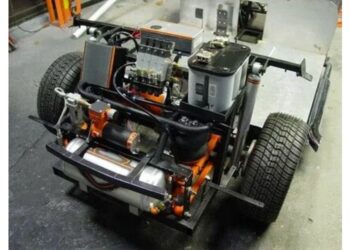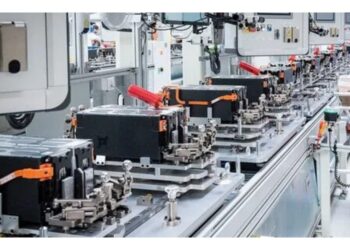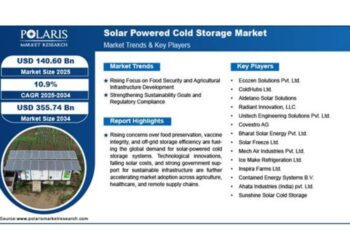As the global transition toward sustainable transportation accelerates, the Electric Vehicle Battery Market has emerged as a cornerstone of innovation and investment. In 2025, the competition is fiercer than ever, with major players striving to lead in efficiency, range, and sustainability. From advancements in lithium-ion technology to breakthroughs in solid-state batteries, the race to dominate the EV battery space is defining the future of mobility.
In this comprehensive guide, we explore the top 10 companies leading the EV battery market in 2025, their strategies, technologies, and what sets them apart in a rapidly evolving industry.
The Rapid Growth of the Electric Vehicle Battery Market
The global Electric Vehicle Battery Market is projected to grow exponentially over the next decade, driven by rising EV adoption, stricter emissions regulations, and technological innovation. With governments offering incentives for EV purchases and companies pledging to go electric, the demand for high-performance, affordable, and sustainable batteries is surging.
According to Persistence Market Research, the global EV battery market is expected to witness a robust CAGR, positioning battery manufacturers at the epicenter of the green revolution.
Let’s dive into the companies shaping the battery-powered future of transportation.
1. CATL (Contemporary Amperex Technology Co. Limited)
Headquarters: Ningde, China
CATL remains the world’s leading EV battery manufacturer in 2025, holding a dominant market share thanks to its partnerships with giants like Tesla, BMW, and Hyundai. Known for its lithium iron phosphate (LFP) and nickel cobalt manganese (NCM) battery technologies, CATL is constantly pushing the envelope on energy density and charging speed.
Why CATL Leads:
- Advanced cell-to-pack (CTP) technology
- Strategic global partnerships
- Massive production capacity and R&D investment
2. LG Energy Solution
Headquarters: Seoul, South Korea
LG Energy Solution continues to thrive in 2025 by supplying batteries to global automakers such as General Motors, Ford, and Volkswagen. The company is heavily invested in solid-state battery development, promising increased safety and higher energy efficiency.
Strengths:
- Global manufacturing footprint
- Focus on sustainability and recycling
- Diverse battery chemistry portfolio
3. BYD (Build Your Dreams)
Headquarters: Shenzhen, China
Backed by Warren Buffett, BYD is both a battery manufacturer and an electric vehicle producer. The company’s Blade Battery technology has garnered global attention for its superior safety, thermal stability, and long lifespan. In 2025, BYD’s market share continues to expand rapidly, especially in Asia and Europe.
Notable Features:
- In-house EV and battery integration
- Highly safe Blade Battery design
- Rapid international expansion
4. Panasonic Energy
Headquarters: Osaka, Japan
Panasonic, a long-time Tesla partner, is investing in next-gen battery technologies including 4680 cylindrical cells. In 2025, the company maintains a strong position in the Electric Vehicle Battery Market through its premium performance offerings and collaboration with major OEMs.
Key Differentiators:
- High-performance lithium-ion cells
- Cutting-edge battery design and longevity
- Strategic alignment with Tesla’s Gigafactories
5. Samsung SDI
Headquarters: Seoul, South Korea
Samsung SDI has established itself as a technological pioneer in the EV battery space. By 2025, its premium batteries power vehicles from BMW, Volvo, and Audi. The company is also spearheading the commercialization of solid-state batteries.
Highlights:
- Exceptional energy density
- Long lifecycle batteries
- Heavy investment in research and innovation
6. SK On
Headquarters: Seoul, South Korea
A spin-off from SK Innovation, SK On has grown rapidly, becoming a key supplier for Ford, Hyundai, and Kia. Its focus on high-nickel NCM batteries ensures greater range and performance, making it a top contender in the global market.
Why SK On Stands Out:
- Next-generation high-nickel cathodes
- Strong global alliances
- Scalable production facilities
7. AESC (Automotive Energy Supply Corporation)
Headquarters: Japan
AESC, once a joint venture between Nissan and NEC, is now owned by Envision Group and continues to scale its global presence. In 2025, it remains a trusted supplier of safe, efficient batteries for Nissan and other OEMs.
Core Strengths:
- Proven safety record
- Competitive battery lifecycle cost
- Expanding global manufacturing hubs
8. Northvolt
Headquarters: Stockholm, Sweden
Europe’s rising star, Northvolt, is carving a niche with its commitment to sustainability and localized supply chains. The company uses recycled materials and renewable energy in its production process, making it a favorite among environmentally conscious automakers.
Sustainable Advantages:
- Eco-friendly production processes
- Strong EU policy support
- Strategic partnerships with BMW and VW
9. Solid Power
Headquarters: Louisville, Colorado, USA
Solid Power is leading the charge in solid-state battery development. Backed by Ford and BMW, the company is on track to commercialize its batteries by 2025, offering dramatically improved safety, energy density, and charging speed.
Innovative Edge:
- Solid electrolyte design
- Promising test results in real-world conditions
- Commercial pilot lines underway
10. ProLogium Technology
Headquarters: Taipei, Taiwan
ProLogium is a global innovator in solid-state battery solutions. The company has made headlines for its breakthroughs in lithium ceramic batteries, which are known for ultra-fast charging and exceptional thermal stability.
Why It’s on the Radar:
- Proprietary solid-state technology
- Partnerships with global EV brands
- Scaling production for mass-market rollout
Trends Shaping the EV Battery Landscape in 2025
Rise of Solid-State Batteries
Solid-state batteries are rapidly moving from lab to market, offering game-changing improvements in safety, charging speed, and range. Companies like Solid Power, ProLogium, and Samsung SDI are spearheading these developments.
Sustainability and Recycling
With environmental concerns at the forefront, battery recyclability and sustainable sourcing are major focus areas. Firms like Northvolt are setting the gold standard by integrating green practices into every aspect of production.
Strategic Partnerships
Cross-border collaborations and joint ventures are accelerating innovation and market entry. From Tesla and Panasonic’s longstanding alliance to newer partnerships like Ford and SK On, collaboration is key to scaling fast.
Gigafactory Expansion
In 2025, gigafactories are the new norm. Large-scale manufacturing facilities are being built across Europe, North America, and Asia to meet surging demand and reduce supply chain vulnerabilities.
The Road Ahead: Opportunities and Challenges
While the Electric Vehicle Battery Market is brimming with opportunities, it is not without challenges. Supply chain constraints, raw material shortages, and the need for rare earth independence are pressing concerns. However, with ongoing innovation, increased government support, and consumer demand, the future remains electric.
Final Thoughts: Who Will Power the Future?
The companies listed above are not just battery manufacturers—they are technology pioneers, sustainability leaders, and mobility revolutionaries. In 2025, as the EV market continues to expand, these firms are setting the standards for safety, efficiency, and environmental responsibility.
As consumers, investors, or industry observers, staying informed about these developments is crucial. Whether you’re considering an electric vehicle purchase or exploring investment opportunities, understanding the dynamics of the Electric Vehicle Battery Market gives you a valuable edge.













